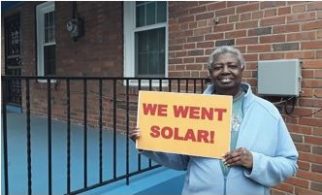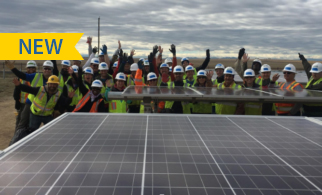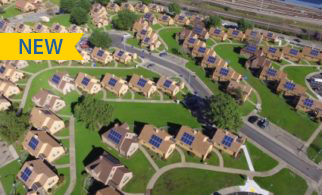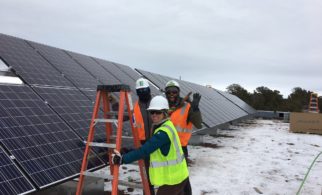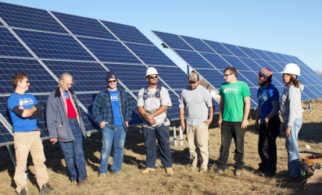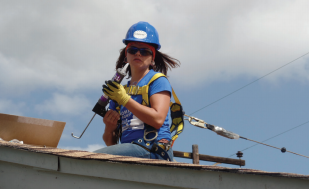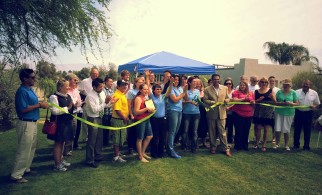Minnesota – Manufactured Housing
Equitable Solar Access Pilot Project for Manufactured Housing in Minnesota
In 2021, the Minnesota Department of Commerce (MN DOC) and Clean Energy Resource Teams (CERTs) launched the Equitable Solar Access Project. Its aim was to explore how community solar might benefit low-income households – particularly those in manufactured housing – served by Minnesota’s municipal and cooperative utilities. The Equitable Solar Access Project (depicted below) generated monthly solar kilowatt-hour (kWh) credits that were deposited into a “bank” at a Community Action Partnership (CAP).
These kWh credits were then used to pay the energy bills of households enrolled in the state’s energy assistance program (EAP) from October to May. The credits ultimately decreased the electricity cost for EAP customers, lowered the taxes and fees levied on each kWh, and allowed limited EAP funds to reach more Minnesota families in need of energy assistance. This model was particularly helpful for households that rely on electricity for heating, such as manufactured homes.
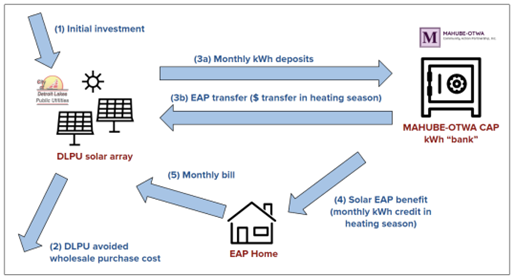
Pilot Structure & Phases:
During Phase I of the pilot, Mahube-Otwa CAP selected EAP customers who met the requirements of the pilot and were willing to provide their electric usage data for impact analysis. Concurrently, the Detroit Lakes Public Utility installed an 11-kW solar array to track and use for the project.
In Phase II of the pilot, the University of Minnesota Chan Lab analyzed and modeled the potential of a larger-scale community solar project and how it would affect households with different consumption profiles and needs. The model quantifies the impact of the solar array on the utility, accounting for the cost of the project, avoiding wholesale energy purchases, credited subscribers, and received EAP payments.
Results of Model:
The model predicts that customers with a community solar subscription, like the Equitable Solar Access Project, can expect to receive $15-$20/month in kWh credit per kilowatt. For example, a 5-kW subscription would result in a $95 reduction in electric bills during each of the seven EAP months in Minnesota. Low-income households with a 4-kW and 5-kW subscription can expect to see a monthly benefit of approximately $70 and $95 respectively in the heating season.
Guiding Principles:
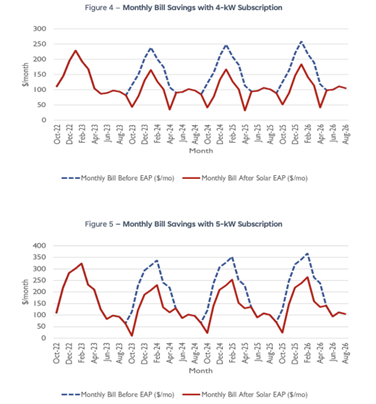
The guiding principles addressed within the pilot project include:
Community Engagement: Relying on core partners such as Mahube-Otwa Community Action, who have deep-rooted relationships with community members through long-time energy assistance programs.
Compatibility and Integration: Expanding existing solar efforts and relying on the established Energy Assistance Program.
Sustainability and Flexibility: Modeling a scalable community solar pilot that can be expanded to benefit the entire state of Minnesota.
Resourceful Links: https://www.cesa.org/event/equitable-solar-access-project-benefitting-minnesota-manufactured-home-residents/
